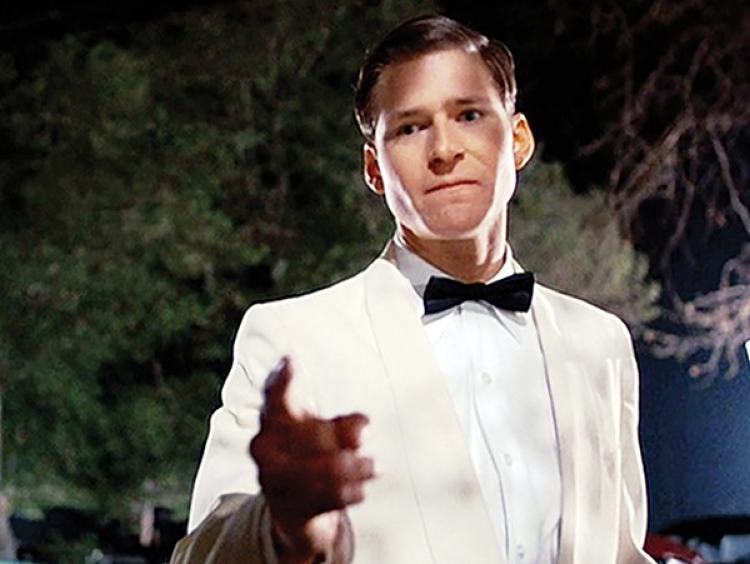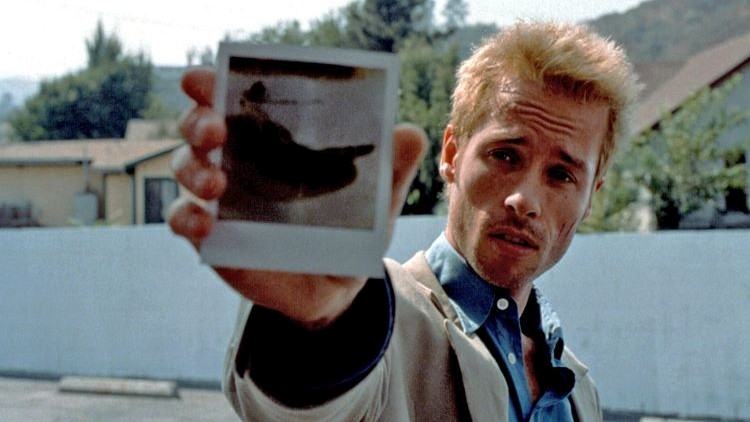An Exploration of Personal Identity in Film
We exist immaterially beneath our skin to survive unique journeys we each call life. But if the Universe was to throw its dice at life one more time, everything we hold dear would crumble into metaphysical dust as we uncannily re-emerged as unrecognisable beings.
How does that feel?
We occupy this world and we each only have to experience one reality. What we value, therefore, for now, is safe. But who are we, really? What if things had been different? These are profound questions which many of us want answers to. Fortunately, they have been explored innumerable times in film—unfortunately, not usually in ways that comfort us.
But what if things had been slightly different? From its unsettling answers this is a profound question. Identity has been explored innumerable times in film—unfortunately, not usually in a way that comfort us.
Personal identity
Where is a person constituted? Is it in the physical body that houses it? We are but a large collection of atoms, which mostly consist of nothing. Whilst we are recognisable by our cellular arrangements, most of our cells ‘live’ fleeting existences and are eventually replaced. Then perhaps we are defined by something psychological that persists through time—say, a combination of personality traits, memories, behaviours, and so forth. But how is it connected to the body? There are so many unanswered questions. What we do know is that age changes us and we don’t fully persist with it.
What’s more important to us than how we metaphysically persist with age is how we want to persist as people—how we see ourselves and, by extension, how we want to be seen by others.

In Futurama S2E2 , a homage to the short story Flowers for Algernon (1958), a monkey called Guenter is presented with a choice between his naturally bequeathed life and a scientific gift. A hat provides him with a successful life but also burdens him with the weight of intelligence. Fry faces a similar dilemma in S3E2 when he is taken over by parasitic worms, making him highly attractive to the love of his life. Futurama has a good history of tackling these issues. Cubert, The Professor's clone, battles for his own identity in S2E15 as does the 'real' Lucy Liu in S3E15. Who will these characters take ownership of?
Fitting our persons satisfyingly into the world is a formidable task. Easy answers only inelegantly fall to the feet of the gullible, who believe that the Universe confers purpose to them; that they’re born with something intrinsically important to do. Lucky them. For those who want freedom and empowerment the task of finding purpose with respect to the Universe, of who they ought to be, is up to them as agents within it.
You want direction? Then go out there and pursue meaningful projects with this identity at their every foundation in careers, arts, sports, relationships, and so on. But you need to proactively make sense of yourself in this empty and finite world as a rational, self-aware being with unbounded consciousness; else you’ll end up at the whim of the society around you as an unfree passenger.
Journeys towards finding ourselves begin in adolescence, during which we form our identities and form social roles and set like goals to fit them. The problem is that we’re not coherent with the world; we can never coerce it into making total sense to us through our perspectives.

Phil (Bill Murray) has multiple attempts to get his life right in Groundhog Day (1993). Will he succeed?
But, furthermore, even if the world made sense today, would it make sense tomorrow?
Your body provides an inimitable viewpoint to look out to the world from at any one time. But if you dig beneath its surface of unity, there is no guarantee you will find some one, for your existence is necessarily torn. Our multiple personalities threaten the unified identities we give ourselves.

High school chemistry teacher Walt (left) is merciless drug trafficker Heisenberg (right) in hit TV show Breaking Bad (both played by Bryan Cranston). Walt, as the original being, transforms into the second being, Heisenberg, upon fully realising his mortality: death forces his hand, making him peer into himself to find someone else, who is raw and unforgiving and relentless, to protect his family's future. A similar disunification of self unfolds for Lester Burnham in American Beauty (1999). Are we, too, all divided against ourselves? Do we want things our current selves can't have, only fetching certain dreams when mortality forces us to. All it takes is a push …
Things could have been so different
The problem grows in magnitude when we consider that the stronghold notions we have of ourselves are easy to erode. All we have to do is imagine what life would be like now if things were ever so slightly different. While we can’t actually visit alternate realities to find out, we can experience their roles in countless sci-fi stories and learn something about ourselves in the process.

In Back to the Future (1985) Marty McFly disrupts the space-time continuum by heading into the past with Emmett 'Doc' Brown. In this reality his dad (pictured) finds the courage he didn't know he had to protect his future wife.
If reality was somehow shifted, everything we value would change with it. This puts into the question the inherent value of things. In this reality I might love philosophy, sci-fi, and film; in another not-so-different reality I might be completely indifferent to them. My relationships with people would no doubt change too. The same would be true for you. We are both the end products of chance events, which catapult us in uncertain directions, and are left to make sense of it all. We are owed nothing.
This is poignantly captured in the film Coherence (2013). On the night of an astronomical anomaly the guests of a dinner party begin to undergo some strange reality shifts as a multiverse is unleashed. One character, Em, is able to make sense of these possible worlds as she bears witness to the huge role of randomness in her life. As she realises the inauthenticity of ‘her’ relationships (is love that special?), she must nevertheless find an identity to cement ‘herself’ in and protect it. What does she value most?

Em (Emily Baldoni) is in disarray in Coherence (2013) as she searches for an Em to cling onto—a similar story to that of Evan Treborn (Ashton Kutcher) in The Butterfly Effect (2004) as he explores his choices across different timelines.'
Em is just like any other human being. Unusually, though, she is forced to face these existential questions head-on. She has to understand who she’s come to be so she can best decide who she will now become.
What will you believe?
How did we become who we are? Our experiences mould us. But while they constrain who we can be, we’re still able to exist freely and happily with their jurisdiction. With the skill of self-discovery we can carve out identities that express the deeply held values we’ve come to hold; we can contrive them from the currents of experiences we flow out of. While we cannot choose our values, we can reason why they matter to us and to the world.
Our values embody what we care about in the world. Whether they are certain people, interests, cultures, or places, we extract meaning from them; however they came to be, however absurd they are, they fulfil us when we watch them grow and we flourish. Our identities express these values: they tell stories about ourselves; they allow us to make sense of who we are in this senseless universe.
The question is: can we believe anything in order to make sense of ourselves? What are truth’s limits?

A harrowed Teddy (Leonardo DiCaprio) in Shutter Island (2010) clasps for a life he can cope with. His positive connections to the world were previously shattered. The Lion King (1994) also engages with this question as Simba is forced to choose between his current life, in which he has freedom but no direction, and his past life, in which duty exists but so does agony. He locates a spiritual strength to help cement a path.
Well, truth certainly isn’t essential to a life of individual meaning: values only exist in their wonderful ways to us. Philosopher Friederich Nietzsche was keen to address this, urging us to relinquish the ‘Will to Truth’, for absolute truth, he says, is self-defeating:
However, we must be careful. We need evidence, actualisation of those values; and if we stop sharing our values with the world, we will have nothing to reach out to with certain grip. Individually, do I value being good at something? Well, then I must show it to the world to feel fulfilment. While external truth is not essential to my beliefs, it is profoundly reassuring.
In relationships, too, we each construct shared values with faith that they exist to the other—the experiences we share, the interests that bind us, love. Without believing in the mutual existence of these things, without ascertaining them, doubt will destroy them.

In Eternal Sunshine of the Spotless Mind (2004) Clementine (Kate Winslet) undergoes a procedure to erase memories of her boyfriend Joel (Jim Carrey) following an argument. Joel hastily does the same to free the pain residing inside of him. Is their love salvageable from what remains?
A matter of faith
Reality is described as a relation between an individual and the world. Truth isn’t necessarily part of the equation, for we can place faith in the Universe. To value truth is a choice.
Sure, truth can help ground you. But do you always hunt truth down for reassurance? Where does its pursuit end? While some facts can set you free, others that paralyse you are better left in the dark. We tip-toe around truth for good reason: to discover the parts of our lives that suit us and to avoid acknowledging that which we don’t want to encounter. No intrinsic value emanates from truth.
Indeed, we lie to ourselves all the time—or, at least, we choose not to uncover the whole truth. Sometimes there is only so much truth we can bear to know, something Leonard (Guy Pearce) has to grapple with in Christopher Nolan’s Memento (2000) as he tenaciously pursues the true story of his wife’s gruesome death.

Relying on the uncertainty of memory: 'So you lie to yourself to be happy. There's nothing wrong with that. We all do it.' — Teddy (Joe Pantoliano), Memento (2000)
What does this all mean?
There is no single future. When you contemplate it is there even a single past? Worse, there is no ‘you’, in any meaningful sense of ‘individual’, which is separable from experience. To think otherwise is a masterful trick of self-delusion.
Still, you need an identity to possess values. You’ll be impotent and stagnant with no direction in life if you don’t take ownership of someone. But who?
Ask: in this world what do you believe in? For whatever you see in yourself, precisely, you must grasp it. A truth follows.
But, in an instant of unrepressed reflection, doubt can be sent rippling through your existence, reverberating.
You strive for equilibrium to dwell the nausea: you consider how you got here, what you value, and why.
Facing turmoil head-on, your choice is thus: you console yourself with truth, and its stable loneliness, or, with faith, you value what is. What will it be?
Uncertainty fills the air once more.

